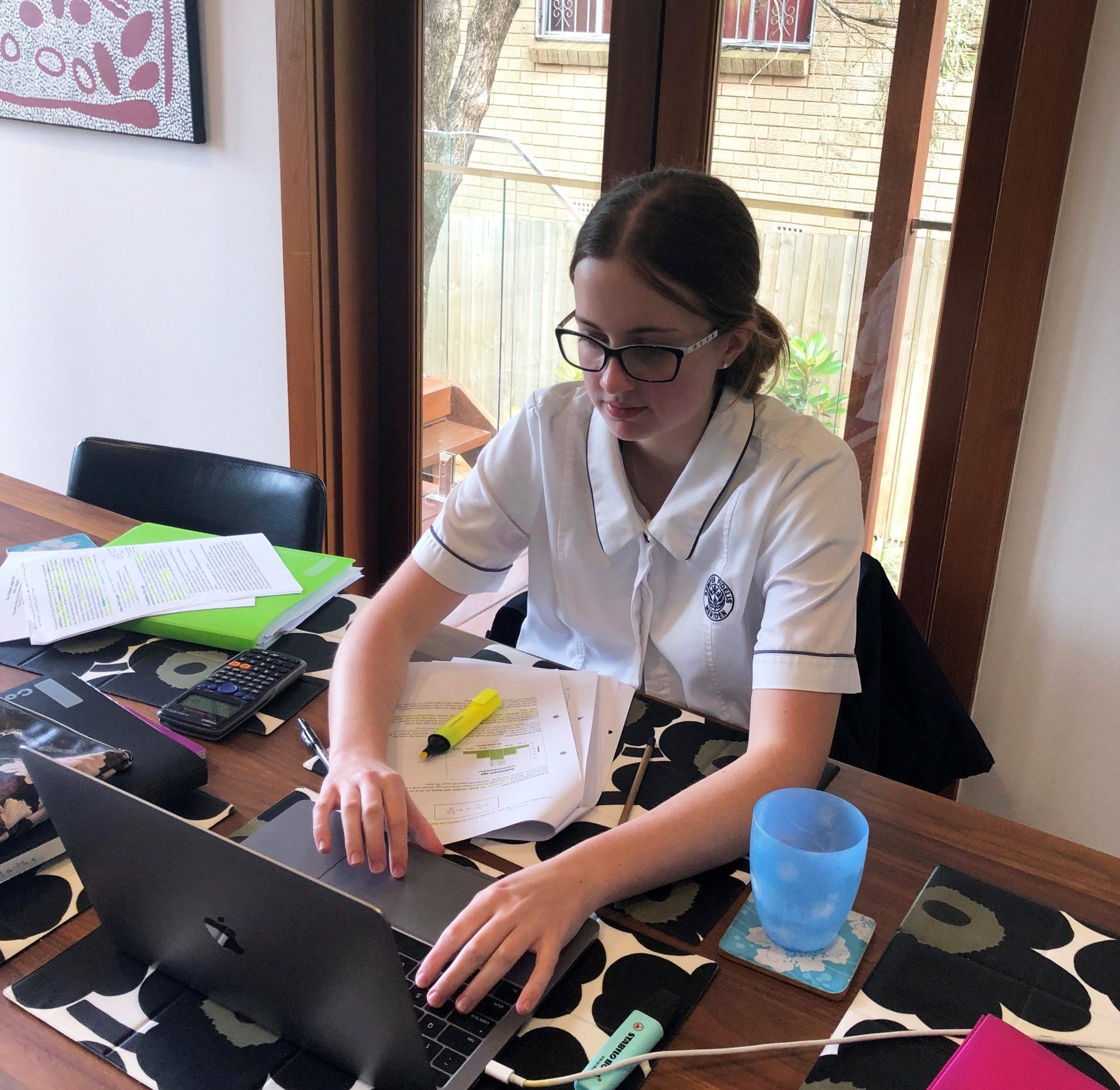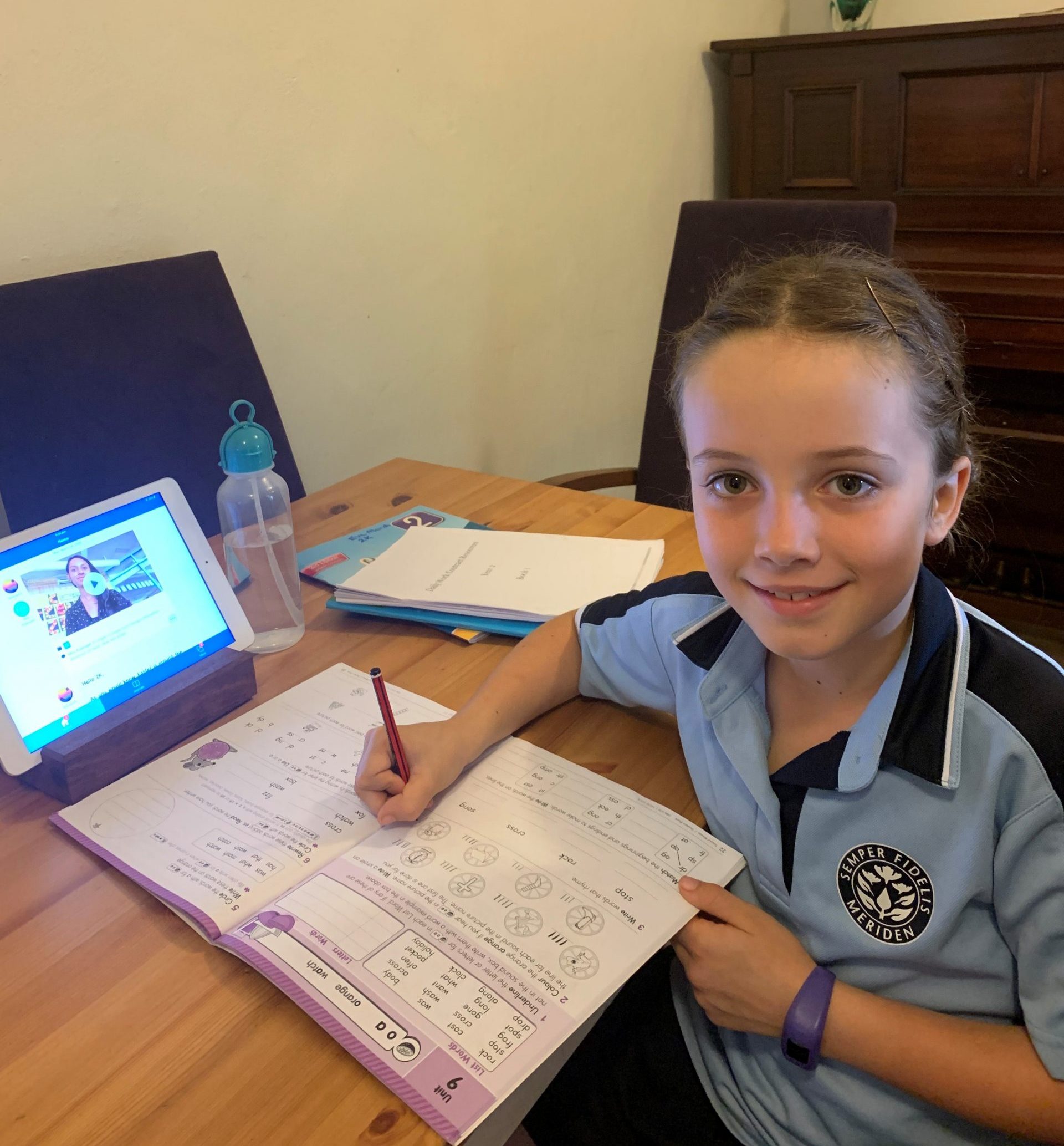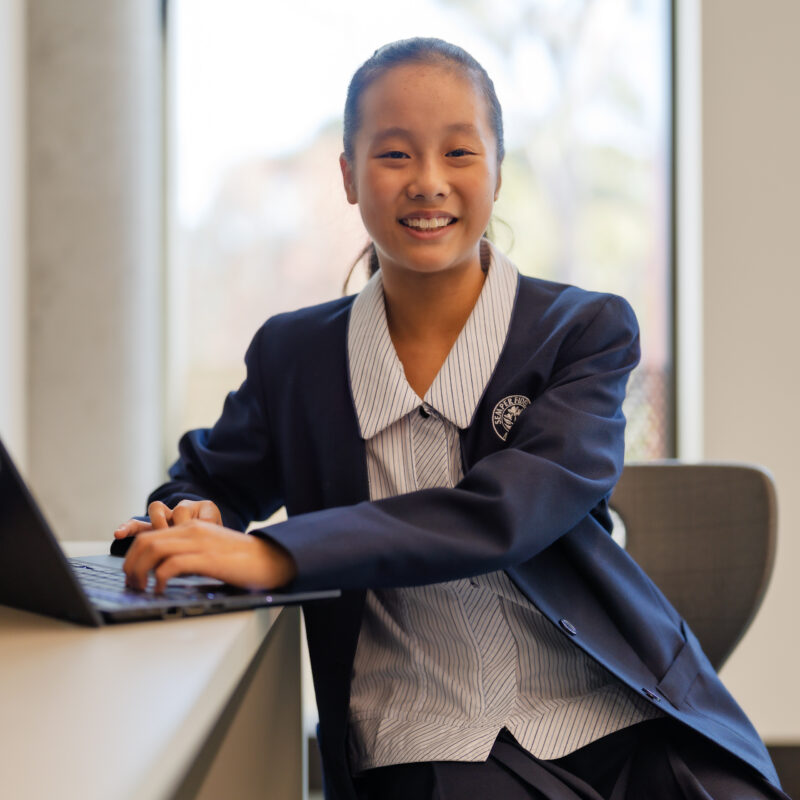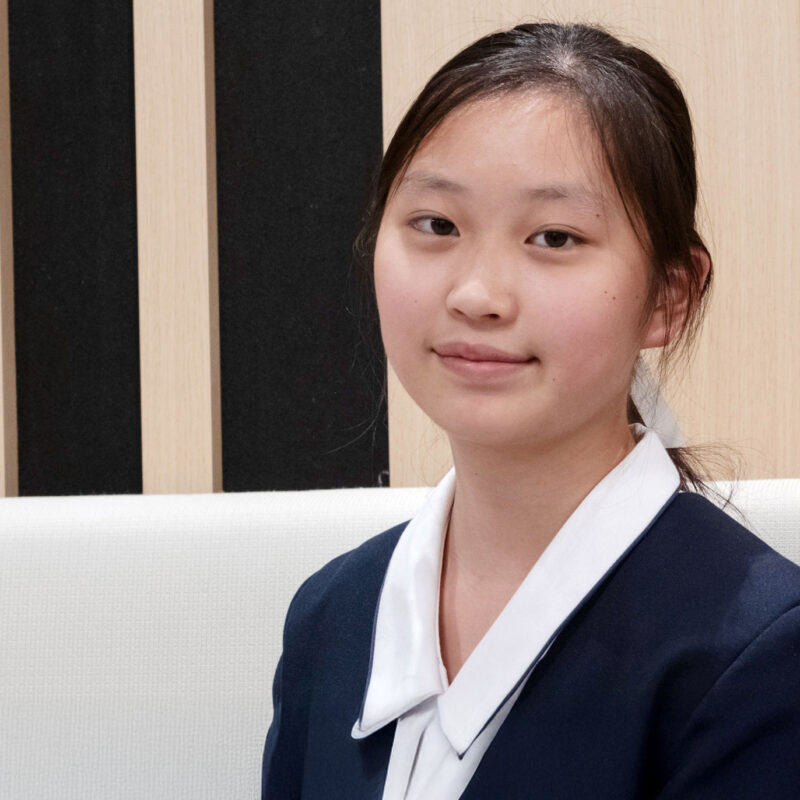Meriden has just wrapped up its second week of online learning, with feedback from parents and students indicating high levels of satisfaction with the new mode of teaching. In an historic week, Year 12 students sat HSC assessments at home, girls flexed their creative thinking skills in finding new ways to undertake practical subjects and the School continued its focus on pastoral care using innovative means to bridge the distance between home and school.
Meriden girls are fortunate to have commenced online learning with existing experience using the School’s purpose-built online Learning Management System. The system hosts all the students’ classwork and is used in conjunction with a variety of other digital learning tools, including Google Classroom and Seesaw in the Junior School and Microsoft Teams and the Google Suite in the Senior School.
Head of Teaching and Learning, Mrs Christine Kenny, said Meriden’s teaching staff have worked hard to develop lessons that inspire and challenge the girls at each stage.
“Our teachers have continued to deliver high-quality, engaging and purposeful lessons which uphold the School’s rigorous academic standards but also provide a sense of stability and continuity for the students.”
Mrs Kenny said part of the success of the transition was due to the fact that all students understood what was expected of them while continuing their learning from home.
“The students follow their regular timetable so, in the Senior School, they sit down at their home work space in their school uniform at 8:20am for their first class. They log on to each subject through Microsoft Teams with their teacher and regular classmates. Dr Greenhalgh has recommended that students set up a ‘school’ at home so each girl keeps her schoolwork confined to one dedicated area in the house where the usual school rules apply, like ‘no phones’, for example.”
Head of Junior School, Dr Michele Benn, said all students from Pre-Kindergarten to Year 6 are provided with learning contracts that allow students to complete work at varying paces and provide parents and carers with some flexibility at home.
“In the Junior School, the Pre-Kindergarten children receive play-based learning activities, based on the daily timetable, that are supplemented with instructional videos prepared by the teachers and posted on Seesaw. Kindergarten to Year 6 girls receive pre-recorded lessons and daily learning contracts from their class and specialist teachers each morning,” Dr Benn said.
“The activities they are assigned are designed to be completed with minimal parental assistance, depending on the age of the student. Teachers differentiate through open-ended activities that allow for a range of thinking and depth of response, student choice of how learning is displayed and some tiered or levelled activities.”
All teachers are carefully monitoring student progress through the work submitted after each class and provide timely, targeted feedback in verbal and written form to students throughout the day.
Junior and Senior School students alike have taken the shift to learning from home in their strides, and even the youngest, like Year 2 student, Eve Marsh, report feeling confident and cared for.
“I love getting a video from my teacher every day and I am enjoying all the activities, like doing science experiments in my kitchen and singing in my garden! I miss my teacher and playing with my friends but I enjoy doing schoolwork at home and my teachers make the activities fun,” Eve said.
Though there is now more physical distance between students and staff, Meriden’s community spirit remains as strong as ever. Girls across the school carry out sporting and pastoral activities via video link and staff continue to prioritise the care of students by checking on their physical, mental and emotional wellbeing on an individual basis.
Parents and students have commented on how much they appreciate the strong continuity Meriden has provided but there is no doubt that some aspects of school life have changed. This includes the way in which some practical tasks are undertaken at home, where settings and resources can vary.
Year 10 Food Technology student, Maxine Trgetaric, said it was heartening to learn that Meriden teachers had provided flexibility in their lessons for practical activities to continue.
“It felt good to know that I wasn’t going to miss out on the valuable practical lessons that I participate in each week at school,” Maxine said.
“Last week, my class was making apricot muesli bars but I didn’t have all the necessary ingredients in my pantry at home. Ms Sheehan helped me to come up with a similar recipe using the ingredients I did have, so I ended up making sultana Anzac biscuits. It was a great lesson in improvisation – a useful skill to develop for later in life!”
Also learning the value of adaptability are Meriden’s Year 12 students, who were relieved to hear NESA’s announcement that the HSC would be going ahead in 2020. With this in mind, students like Ella Asnicar sat the first series of online HSC assessments last week.
“I am grateful that we can continue studying and working towards HSC exams without any uncertainty,” she said.
“Mrs O’Loan and the History Department staff were excellent in preparing us for our Ancient History assessment task. I was able to complete and submit my task in a similar frame of mind to any other in-class exam and I felt reassured by the availability of my teachers in the lead-up to the task. Thanks to the Meriden teaching staff and the ICT Department, Year 12 students are feeling prepared and ready for the challenges ahead.”




